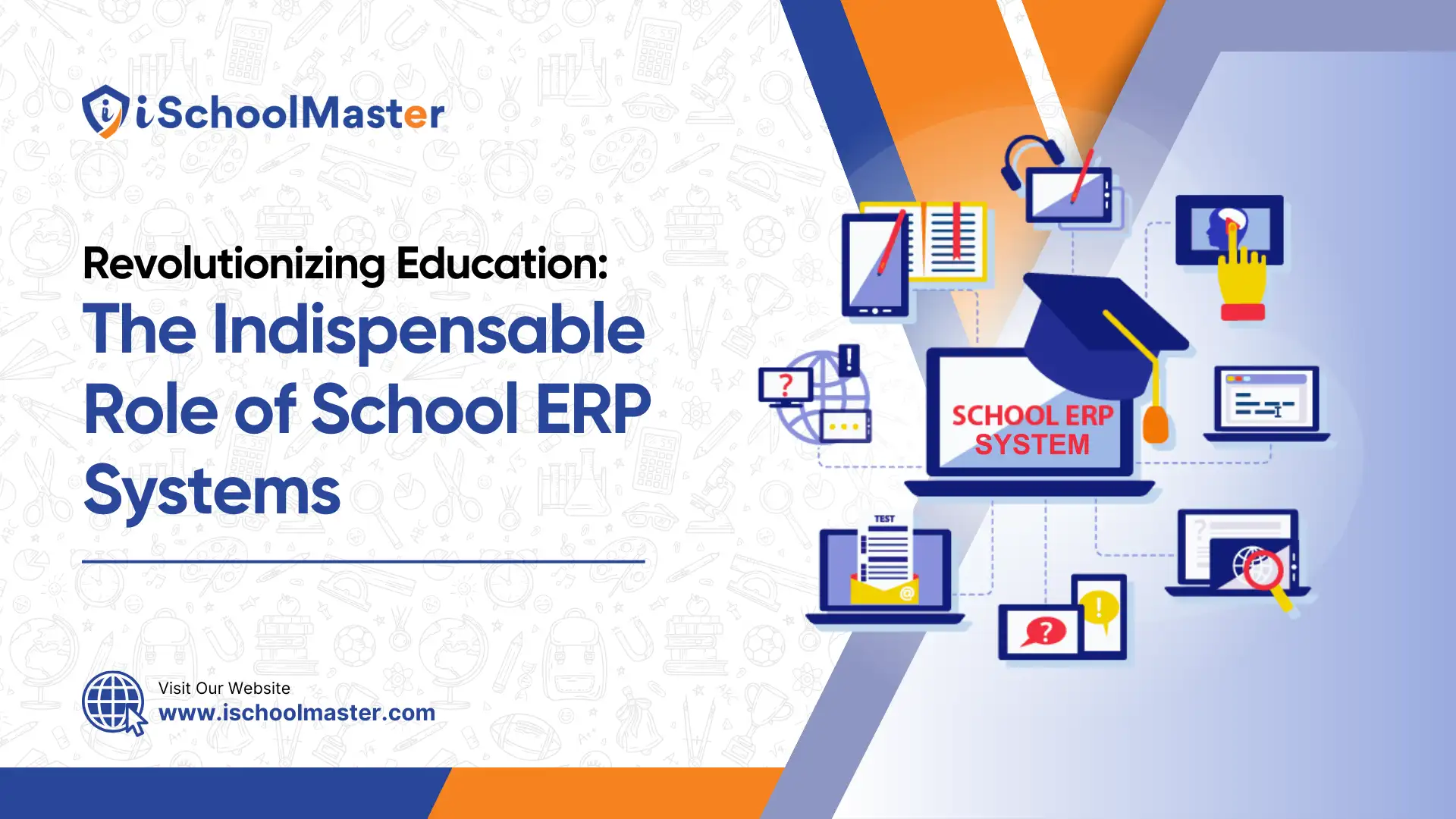Table of Contents
Education is rapidly evolving, and technological advancements play an increasingly important role. It streamlines administrative processes, facilitates communication, and makes the learning environment more efficient.
One such technological marvel that has significantly impacted the education sector is the School Enterprise Resource Planning (ERP) system. This school management software has emerged as a game-changer, revolutionizing how educational institutions operate and manage their day-to-day activities.
Understanding School ERP
School ERP is a robust software solution designed to integrate and automate various administrative and academic functions within an educational institution. It integrates student admissions, attendance tracking, examination management, and communication into one efficient and seamless process.
Key Features of School Management Software
Student Information Management
School ERP systems centralize student information, making it easily accessible to authorized personnel. This includes personal details, academic records, attendance history, and more. Such streamlined data management ensures accuracy, reduces redundancy, and facilitates informed decision-making.
Attendance Tracking
Automated attendance tracking is a crucial feature that minimizes manual effort and improves accuracy. School ERP systems use biometric systems, RFID cards, or mobile applications to record and monitor student attendance, enabling real-time updates for parents and educators.
Academic Management
The academic module of a School ERP system assists in creating and managing timetables, class schedules, and teacher assignments. It provides a structured framework for curriculum planning, helping educators maintain a well-organized academic calendar.
Examination Management
School ERP systems simplify examinations by automating scheduling, result processing, and report generation. This reduces the administrative burden on staff, enhances transparency, and ensures timely dissemination of results to students and parents.
Communication and Collaboration
Effective communication between stakeholders is vital for the success of any educational institution. School ERP systems facilitate seamless communication through features such as messaging, announcements, and notifications. Additionally, collaborative tools enable educators, students, and parents to interact and stay informed.
Financial Management
School ERP systems automate financial management tasks such as fee collection, budgeting, and expense tracking. This transparency ensures financial accountability and allows institutions to allocate resources more efficiently.
Benefits of School Management Software
Efficiency and Time Savings
Automation of routine administrative tasks saves time and resources, allowing educators and administrators to focus on more strategic aspects of education.
Enhanced Parent-Teacher Collaboration
Improved communication channels foster stronger relationships between parents and teachers, promoting a collaborative approach to a child's education.
Data Accuracy and Security
Centralized data management enhances data security, minimizes errors, and protects sensitive information from unauthorized access.
Performance Analysis and Decision Support
Analytics tools within School ERP systems provide valuable insights into student performance and institutional effectiveness. This data-driven approach aids in making informed decisions to enhance overall educational outcomes.
Navigating Challenges and Future Trends
Implementing a School Enterprise Resource Planning (ERP) system is a transformative journey that brings numerous benefits. However, it also presents unique challenges.
Navigating these challenges is crucial for the successful adoption and sustained use of the ERP system. Additionally, staying abreast of future trends ensures that educational institutions can harness the full potential of technology to enhance their offerings.
Let's delve deeper into both aspects:
Navigating Challenges
Change Management
Implementing an ERP system requires a significant shift in processes and mindset. Resistance to change among staff and stakeholders is common. Addressing this challenge involves comprehensive change management strategies, including communication plans, training programs, and fostering a culture of adaptability.
Data Migration and Integration
Migrating existing data and seamlessly integrating the ERP system with other applications can be complex. Ensuring data accuracy, consistency, and integrity during migration is crucial. Robust testing and validation processes are necessary to minimize disruptions.
Staff Training
Adequate training is paramount for the effective use of the ERP system. Institutions must invest in ongoing training programs to keep staff updated on system features and functionalities, ensuring optimal utilization.
Cost Management
While the long-term benefits of an ERP system are substantial, the initial costs can be significant. Institutions need to carefully manage budgets, explore cost-effective solutions, and establish clear ROI metrics to justify the investment.
Customization Challenges
Balancing the need for customization with system stability is a delicate task. Overly customized systems can be challenging to maintain and upgrade. Striking the right balance ensures that the ERP system remains agile and adaptable.
Conclusion
In the digital age, School ERP systems have become indispensable tools for educational institutions striving to meet the evolving needs of students, parents, and educators. By automating processes, improving communication, and enhancing overall efficiency, these systems contribute significantly to the advancement of the education sector.
As technology continues to evolve, the role of School ERP in shaping the future of education is set to expand, creating a more connected, transparent, and effective learning environment for all stakeholders involved.
Author - Rohan Nanda
Rohan Nanda is a seasoned content writer with 9 years experience in school management system, school software and erp solution content across multiple formats. He leverages his skills in crafting curated content on the school management system. In his personal time, He enjoys reading article and being up-to-date on trends in school erp technology.

